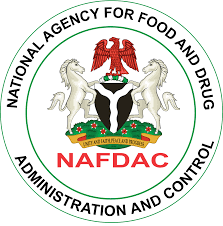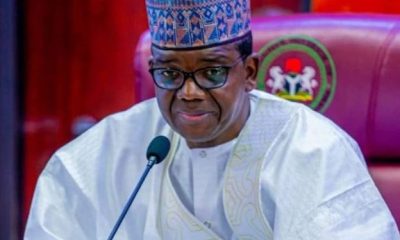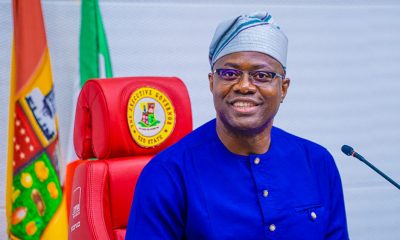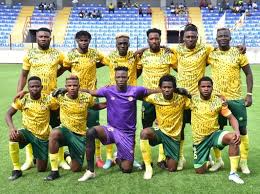Business Analysis
Thoughts On Revenue Generation

By Abiodun Komolafe
In a nationwide address last Monday, President Bola Tinubu announced some palliatives to mitigate the impact of the high cost of living brought about by the fuel subsidy removal.
Great speech! Excellent delivery! So, kudos to Mr President! However, a section of Nigerians frowned at the speech because ‘it was one-sided’. According to this group, the president only pleaded with the masses to persevere without telling Nigerians what the elite and the privileged clique would be sacrificing to make Nigeria great again.
Though Nigerians have never doubted Tinubu’s capacity to be to Nigerians what Prophet Elijah was to the widow of Zarephath, they had expected him to talk about, say, a certain percentage of the emoluments and the privileges of the ruling class – beginning with the president, to the governors, the judiciary and other politically-exposed persons – that would be going into a certain purse in favour of Nigeria’s rescue mission. “The president spoke eloquently to appease the masses; but what about the ‘elite of the elite’ who put us in this situation? Won’t there be a probe?”Well, it is no longer news that the fuel subsidy removal has opened up many wounds, including the worms of scams and inefficiency in Nigeria’s governance system. All the same, that Nigeria is in dire need of an escape route from her present financial and socioeconomic predicament cannot be overstated. A situation where annual budgets are hugely dependent on foreign borrowings, always running on alarming deficits; and where monetary authorities only present unrealistic balance sheets is not healthy for a country that’s already on tenterhooks. Sad that our economic expertise no more generates predicted results, and Nigerians continue to gnash their teeth in deeper pains. Nigeria’s economy needs urgent surgery; otherwise, the future is in for a serious mess.
Tinubu is known as a revenue driver. He knows all the tricks in the business of governance. I have also argued elsewhere that Zacchaeus Adelabu, his Special Adviser on Revenue, is a man of unimpeachable pedigree. I stand by my words! As fate would have it, the Oyo State-born technocrat is the man chosen by the president to help him find reasonable solutions to that very important aspect of governance. The bitter truth is that the task before Adedeji and his team is as enormous as it is unenviable. But while our president expects Nigerians to empathetically persevere in the face of the agonizing pains, he also needs to bear in mind that, until the superrich are prepared to play major roles in this cause, the troubling chapter of Nigeria’s history will remain a tale too difficult to tell.
Living in penury amidst plenty! Nigeria is in trying times and all eyes can see it! According to the National Bureau of Statistics (NBS), nearly 133m Nigerians are multi-dimensionally poor. Of this figure, 86.1m (i.e., 65%) live in the North while the rest (i.e., 35%) live in the South. Approximately 70% of Nigeria’s population is said to be living in the rural areas; yet, these areas are home to 80% of poor people. The intensity of poverty in rural areas is also higher, at 41.9%, compared to 36.9% in urban areas.
As if these are not enough, 4 out of 10 Nigerians are said to be experiencing monetary deprivations but “more than 6 out of 10 are multi-dimensionally poor”. As at June 2023, unemployment stood at 33.3%; underemployment at 22.8%; youth unemployment, 42.5%; and youth underemployment, 22.0%.
Once upon a time in Nigeria’s recent history, the social media platforms were awash with the videos of young men who, in their hundreds, were reportedly undergoing paramilitary training in insurgency in selected camps. Unfortunately, the government of the day watched helplessly as some misguided elements acted recklessly. Now, the chickens have come home to roost, with the Indigenous People of Biafra (IPOB) and the Eastern Security Network (ESN) as the culprits; and Nigerians are living with the consequences.
But Nigeria can’t continue like this! To get out of this mess, let there be a comprehensive and sincere economic summit. Let the leakages in our revenue generation be fully identified and solidly blocked. Let oil theft and smuggling be confronted with renewed vigour, without giving room for any sacred cows. Beyond the rules of engagement associated with the destruction of illegal refineries, let there be innovative ways through which seized vessels and their products can add value to the sources of revenue for the country. From Ilesa in Osun State, to Maru in Zamfara State, let all issues relating to illegal mining be decisively addressed and scapegoats made, where necessary. Most importantly, let the roles of non-state actors in the protection of our pipelines and mining sites be reviewed in the overall interest of Nigeria.
We need to fix our hospitals with adequate resources and cutting-edge medical technology that will help patients to diagnose diseases and get healed. Agriculture (mechanized farming) and food security must be vigorously pursued while education sector and skills acquisition programmes must be adequately funded.
At the heart of economic growth is electricity supply. With a population of 223,804,632, Nigeria’s power generation capacity is below 5,000 megawatts. South Africa, with a population of 58,048,332, generates 63.28 megawatts while Egypt, with a population of 109,546,720, has 60.07 megawatts to her credit. So, how did Nigeria arrive at this pass? Queen Elizabeth of England was once reported to have recommended an electric firm that would give Nigeria sustainable power supply, instead of paying the $12 billion reduced debt, which the Olusegun Obasanjo-led government said must be paid back as loans acquired by Nigeria. For reasons best known to him, ‘Balogun Owu’ never agreed to the Queen’s proposal. Instead, he went on a turbine-building expedition. And, since society couldn’t sanction him, the former president started pontificating, never to be satisfied!
Wait a minute, why has Nigeria become a dumping ground for electric generators? Again, what are the roles of estimated billings and what are the steps being taken by the government to put a stop to this despicable act? Until these and other pertinent questions are answered, improvement in electricity generation may continue to be a fantasy in Nigeria. Until all houses, even military and public institutions are prepared to do the needful, there will be no stop to hike in electricity tariffs.
According to experts in Tax Administration, tax evasion is a crime that can distort the overall economic, political, and social systems of a country. Economically, it affects fair distribution of wealth for the citizens. Socially, it creates different social groups motivated by tax evasion, thereby leading to unfair and unhealthy competition. So, it is a criminal offence in the eye of the law, and it is punishable by facing criminal charges bordering on money laundering.
In sane climes, tax evasion is another serious economic crime known as sabotage, which no law-abiding citizen would like to commit. In the USA for example, former President Donald Trump is still battling with it, in addition to several other offences hanging on his neck. But here in Nigeria, the rich and the powerful are deliberately evading tax without proportionate consequences. Starting with public institutions therefore, the focus should be on the rich while the middle and lower classes are expected to key into ‘pay-as-you-go’.
Lastly, with the new drive to raise revenue by making individuals and companies to be corporate responsible, fightback is imminent! Therefore, communication becomes of paramount importance to enlighten and educate those concerned to make them responsible.
May the Lamb of God, who takes away the sin of the world, grant us peace in Nigeria!
KOMOLAFE writes in from Ijebu-Jesa, Osun State, Nigeria (ijebujesa@yahoo.co.uk)
Business Analysis
A Peep Into Dangote’s Refinery, The World’s Engineering Wonder

By Cletus Akwaya
Call it Dangote Republic and you would not be wrong, for that is what it means in real sense.
The ultra-modern Dangote Refinery and Petrochemical complex located at the Lekki Free Trade Zone in Lagos is the World’s Engineering wonder.
A guided tour for top Media executives in the country by the President, Dangote Industries Group himself, Alhaji Aliko Dangote on July 14, provided a rare privilege and opportunity to appreciate the project that has emerged as the World’s largest single train petroleum refinery.
Dangote, the Kano-born business mogul and Africa’s richest man, whose vision for the industrial transformation of Nigeria led to the initiation of this project is certainly a fulfilled person, having accomplished such a gargantuan task in the spelt of just about 10 years.
The refinery, which is built and equipped with the latest technology in the industry. It is a behemoth sitting on a huge land space of 2, 735 hectares, approximately seven times, the size of Victoria Island, the octane section of Lagos, which has become the abode for the very rich in the nation’s commercial nerve – centre over the decades.
The land was provided by the Lagos state government after the payment of $100million dollars by the Dangote Group as cost of the land.
The edifice didn’t come easy as the engineers had to reclaim 65million cubic metres of sand through dredging of the Atlantic coastline to pave way for the construction of the refinery and its accompanying facilities especially the Jetty.
The Dangote refinery is not a stand-alone project as it has a coterie of associated industries and infrastructure making it a self-reliant complex.
For instance, the company has a fully developed port (jetty)for maritime operations for both in-take of crude and discharge of refined products. This perfectly compliments the huge pipeline network that lands into the Atlantic for intake of crude and loading of refined products to ships. Its Jetty, which stretches 9KM into the international waters in the Atlantic Ocean and 12.5 KM from the refinery is perhaps one of the most modern in the world built with sand piles that shield the final landing points from the violent oceanic waves, thus providing for safety and stability of ships, barges and oil tankers.
The complex is accessed by 200KM network of concrete under-lay and well asphalted road network to ease vehicular traffic. The refinery has its dedicated steam and power generation system with standby units to adequately support operations of the various plants in the complex.
It has successfully completed a 435 MW power generating plant for its operations. The power generated from this plant surpasses the entire distribution capacity of Ibadan Electricity Distribution company, which supplies electricity to five states of the Federation including Oyo, Osun, Ondo, Ekiti and Kwara.
The Dangote refinery with a capacity of 650,000 bpd of crude oil is designed to handle the crude from many of the African countries, the Middle East and the US light crude. Its petrochemical plant is designed to produce 77 different high-performance grades of polypropylene, which is the major raw material for numerous industries and other refineries. With a huge refining capacity, Alhaji Dangote said the products from the refinery company would easily meet 100 per cent the needs of Nigeria’s demand for gasoline, diesel, Petrol and Aviation Jet with 56 per cent surplus for export, from which the company projects to earn a princely $25billion per annum from 2025.
The company has facility to load 2,900 trucks with its various products in a day by land and millions of litres of products through the waters depending on where the orders come from. The $25million projected revenue in 2025 could translate to a huge relieve for the nation in dire need of foreign earnings to shore-up the value of the nation’s currency.
The associated industry, the Dangote Fertilizers Limited also situated in the complex utilises the raw materials from petrochemicals to produce different varieties of fertilzers especially Urea, NPK and Amonia grades of fertilizers. Apart from the local market, Dangote is already exporting its fertilizers to other countries including Mexico, a testament to its high quality that meets world standards.
This feta, the President of Dangote industries explained was possible because of the high quality, the company has opted to pursue. In between the refinery and the fertilizers complex lies a 50,000 housing estate, which provided accommodation for the construction workers at the time of construction especially during the COVID-19 lockdowns of 2020, when workers remained encamped on the project site to continue with the work.
What stands out the Dangote Refinery is perhaps not in its sheer size and capacity but in the fact that it is perhaps the only of such projects whose Engineering, Procurement and construction(EPC) was done directly by the company without engaging the world renowned refinery constriction companies like Technip Bechtel (USA)Technip (France)Aker Solutions (Norway)Chiyoda Corporation (Japan)SNC-Lavalin Group (Canada)J. Ray McDermott (USA)JGC Corporation (Japan)Hyundai Heavy Industries (South Korea)Foster Wheeler (USA) and Daelim Industrial Company (South Korea)
“The design of the refinery was handled by dozens of Engineers and technical experts assembled in India and Houston, Texas, USA to execute engineering designs of the refinery,” said Edwin Kumar, the Executive vice President, Oil and Gas for the Dangote Group who midwifed the birth of the refinery complex.
“We didn’t give out contracts to anybody, we bought every single bolt and equipment ourselves and had it shipped into the country,” Dangote explained to his guests.
Part of the equipment imported into the country was the procurement of over 3,000 cranes to handle the evacuation of huge consignments of machinery from the wharf and for subsequent installation at the construction site. The cranes have become an unusual assemblage of such equipment to be found in one place on the African continent.
If there was any doubt that Alhaji Aliko Dangote is Africa’s richest man, the successful completion of the refinery and petrochemical complex at the cost of about $20billion has further confirmed his status as Africa’s leading businessman and entrepreneur.
However, Dangote does not really accept that he is the richest man on the continent,
“When you are rich, you accumulate cash, but when you wealthy, you create wealth” he told the top Media executives on tour of the huge project, explaining that he would rather prefer to be referred to as a “Wealthy man.”
And consistent with his business philosophy, Dangote hinted of plans to list the refinery on the Nation’s stock exchange by the first quarter of 2025. His vision is to avail the public of 20 per cent of the shares so as to ensure participation by Nigerians and even international portfolio investors.
The refinery company and the entire of Dangote Group at the moment provides direct employment to about 20,000 Nigerians and much indirect jobs to Nigerians, making it the highest employer of labour outside the government.
Most interestingly, the highly technical operations of Dangote refinery is operated by over 70 per cent of local manpower who work in the refinery control, centre, the numerous production and quality control laboratories among others. Some of the staff who explained their tasks to the visiting media executives said they were graduates of Engineering and allied disciplines recruited mostly from Nigerian universities and trained in various institutions abroad for periods ranging from sixth months – one year to master refinery operations. Through this strategy, Dangote has ensured transfer of technology to thousands of Nigerian youths.
“We don’t know where they come from as long as they are Nigerians and if they decide to leave and join international oil companies for better job opportunities, we have no problem with that,” Dangote responded to a question on the strategy to retain the technical manpower for stability of the refinery’s operations.
The Dangote Refinery is a Republic of some kind, at least an economic or industrial Republic.
But the man who presides over this ‘industrial empire’, Alhaji Dangote says his only ambition is to boot the nation’s economy and ensure netter life for Nigerians.
“When you import any product into Nigeria, you are importing poverty and exporting our jobs to those countries from where you are importing” Dangote said adding “this is why I want economic nationalism in Nigeria.”
Dangote’s vision even goes beyond Nigeria as he has cement factories and other business concerns in about 13 African countries including Ghana, Ethiopia, Tanzania, Uganda, etc. This signifies his continent-wide dream to transform Africa’s economies.
There has been attempts by some international oil companies to frustrate the successful take-off of the refinery, through over pricing and in some instances outright denial of crude supplies for processing. This made Dangote to commence importation of crude from the US. However, the cheering news that the Nigerian National Petroleum Company Limited (NNPC) has finally approved a supply arrangement has raised hopes that full operations will commence and that the long-awaited Dangote oil products will reach consumers around the country from August.
At last, the Dangote Group may have achieved its objective to serve as the elixir to Nigeria’s industrialisation effort. This is perhaps the greatest legacy of Africa’s richest man to his country of birth.
Business Analysis
The Imperative of CBN’s Autonomy

By Ibrahim Modibbo
Under globalization and multi-cultural settings such as ours, Nigerians are under no illusion to the enormity of the myriad of challenges confronting the President Bola Tinubu Administration. In my opinion, anxiety and trepidation seems to trial the move by the National Assembly, to amend the provisions of the CBN Act of 2007.
Industry watchers and members of the banking community fear that the attempt to amend the Act will erode confidence in the apex bank, have a negative impact on the banking industry and ultimately, affect the nation’s economy.In the dynamic landscape of global economics, the independence of central banks stands as a cornerstone for maintaining sound macroeconomic stability and fostering confidence in financial markets.
Across all major world economies, from the United States of America, United Kingdom, the developed Asian economies to the European Union, this principle is upheld as a vital aspect of prudent economic management. However, recent proposed amendments to the Central Bank of Nigeria (CBN) Act by the Nigerian Senate threaten to erode this independence or autonomy, putting Nigeria at odds with global best practices and jeopardizing its economic stability going forward. In this piece, we shall examine the critical reasons why preserving the autonomy of the CBN is imperative for Nigeria’s economic future.It is crucial that we fully understand and appreciate the significance of maintaining the Central Bank’s independence. An independent central bank is critical for ensuring that monetary policy is conducted without political interference. This autonomy allows central banks to implement policies that focus on long-term economic health, such as controlling inflation, stabilizing the currency, and promoting sustainable economic growth. In major economies, central bank independence has been instrumental in achieving these goals. The Federal Reserve in the United States, the European Central Bank, and the Bank of England all operate independently of their respective governments, ensuring that monetary policy decisions are based on available economic data and analysis rather than political whims.
While commendably the idea of the proposed amendments to the CBN Act aim to enhance compliance and strengthen corporate governance, some of the key aspects pose significant threats to the bank’s autonomy. One of such proposal is the creation of a Coordinating Committee for Monetary and Fiscal Policies. This committee, dominated by fiscal authorities including the Ministry of Finance, would have a considerable influence on monetary policy decisions. Such an arrangement risks subordinating monetary policy to fiscal objectives, undermining the CBN’s ability to achieve its primary mandate of price stability in the economy. Apparently, this is a step in the wrong direction in the management of the Nigerian economy.
Fiscal policy, which is the cardinal responsibility or primary function of the Ministry of Finance, encompasses a range of activities related to government spending and taxation. This policy area involves the allocation of government resources, management of public funds, and implementation of tax regulations, all aimed at influencing the country’s economic conditions positively. While the effective coordination between fiscal and monetary policy is desirable, giving fiscal authorities dominance over the CBN compromises the bank’s ability to act independently. This fiscal dominance could lead to short-term policy decisions that prioritize immediate fiscal needs over long-term economic stability. For instance, the government might pressure the CBN to keep interest rates artificially low to reduce borrowing costs, even if such a policy could lead to higher inflation and other economic vulnerabilities.
Another alarming aspect of the current amendment process at the hallowed precincts of the Nigerian Senate pertains to the insistence on subjecting the Central Bank of Nigeria’s yearly budget to approval by the National Assembly. This proposed measure raises significant apprehensions regarding the potential politicization and interference in the operations of the Central Bank of Nigeria. The approval process could result in undue delays of monetary policy decisions, hindering the CBN’s ability to respond swiftly and effectively to economic challenges. In an environment where rapid decision-making is often essential, this could prove detrimental to Nigeria’s economic health.
Global best practices emphasize the need for central bank independence to ensure economic stability and investor confidence. Across the world today, major and emerging economies adopt this framework to ensure a situation of a more stable and predictable economic environments. For Nigeria to diverge from this path would not only isolate it from the global business community but also undermine investor confidence, leading to potential capital flight, increased borrowing costs from multilateral institutions, and a general loss of economic credibility as well as downward grading by global rating organizations.
The proposed amendments, particularly the inclusion of the Coordinating Committee for Monetary and Fiscal Policies, represent a concerning shift towards fiscal dominance. This committee’s role in determining interest rates on the CBN’s temporary advances to the federal government is especially problematic. With the committee chaired by the Minister of Finance as proposed in the current amendment and ostensibly dominated by fiscal authorities, there is a clear conflict of interest. Such a structure inherently favors fiscal objectives over monetary prudence, jeopardizing the delicate balance and the thin line required for sound macroeconomic management. The CBN should rather be encouraged to foster effective prudential guidelines in management of its advances to the federal government as enshrined in the current Act.
The potential for political interference in the CBN’s operations extends beyond the management of the monetary policy. It threatens the very fabric of Nigeria’s economic governance. An autonomous central bank acts as a check on government excesses, ensuring that fiscal policy does not compromise long-term economic stability. By undermining the institutional and operational autonomy, the proposed amendments risk eroding this safeguard and shield, potentially leading to economic policies driven by political rather than economic considerations.
While the Nigerian Senate’s intentions to amend the CBN Act may stem from a desire to enhance governance and performance by the apex, the proposed measures threaten to undermine the very foundation of effective economic management. Eroding the CBN’s autonomy not only contradicts global best practices but also risks plunging Nigeria into a cycle of political interference and economic quagmire.
It is therefore imperative that the Senate reconsider some key aspects of these amendments as enunciated here, preserving the CBN’s independence as a cornerstone of Nigeria’s economic policy framework. Only by doing so can Nigeria ensure a stable, predictable, and resilient economic future, in line with global standards and best practices. The nation’s economic health and international standing depend on it.
While admitting that some of the proposed amendments to the CBN Act are commendable as they are designed to entrench the culture of compliance, strengthen corporate governance, and reposition the apex bank for improved performance in attaining its mandate, most analysts however, say some of the major proposed amendments to the CBN Act appear to erode the bank’s autonomy and weaken the independence of monetary policy, at variance with international best practices.
For example, the proposed coordinating committee for monetary and fiscal policies concerning monetary policy in their opinion will undermine the apex bank’s independence and capacity in achieving its price stability mandate, including fiscal and monetary policy coordination as well as undermining the CBN’s operational independence and weaken the apex bank’s flexibility in deploying appropriate policy frameworks in a dynamic economic environment to achieving its core mandate.
Similarly, the proposed amendment to the CBN Act by the lawmakers will promote undue political interference in purely economic matters, as the fiscal authority would dominate the proposed committee’s membership and chairmanship. Subjecting the CBN’s budget to National Assembly approval will also undermine its institutional autonomy and introduce the potential for political interference in monetary policy which could lead to significant delays in monetary policy implementation and hinder swift monetary policy responses with potential negative implications for macro-economic stability.
According to Dr. Williams Puye an economic and financial expert, some of the proposed amendments threaten the independence and operational autonomy of the CBN as the country’s monetary authority. He asserted that the inclusion of the coordinating committee for monetary and fiscal policies in determining the rates of interest on the apex bank’s temporary advances to the federal government will not only erode the bank’s operational autonomy, but also breed conflict of interest since the committee is chaired by the minister and dominated by fiscal actors.
The now controversial amendment bill to the CBN Act is sponsored by Senator Mukhail Adetokunbo Abiru and co-sponsored by all 41 senators of the Senate Committee on Banking, Insurance and other Financial Institutions and proposes the establishment of a 7-member coordinating committee for monetary and fiscal policies to be chaired by the minister of finance, to among other things set internally consistent targets of monetary and fiscal policies that are conducive to controlling inflation and promoting financial conditions for sustainable economic growth.
It sets the tenure of the CBN Governor and Deputy Governors at a single non-renewable term of six years, appointment of a minimum of one career staff of the bank in the committee of governors, the appointment of at least one female among the External Directors as a Board member, that the five external directors should hold office for a non-renewable term of five years (one year less than the six-year tenure of the governor and deputy governors.
The amendment further proposes the establishment of the position of chief compliance officer in the rank of a Deputy governor, who reports directly to the Board and may occasionally be summoned to appear before the relevant committee of the National Assembly, limit temporary advances to the federal government, including modalities for the issuance of new legal tender to replace existing ones, providing that the withdrawal of the old legal tender should be carried out in phases and in a manner that does not cause any distortion to economic activities, while the apex bank should be in possession of sufficient new currency, not less than 70 percent of the old stock of currency to be withdrawn before embarking on such a programme.
In the area of Board governance, based on the fact that the CBN governor also serves as the Board chairman, the bill proposes that the board committees should be headed by non-executive directors instead of the deputy governors. The bill further proposes to amend the paid-up capital of CBN to N1trillion and that this figure may be increased from time to time by such amount as the government may approve either by way of transfers from the general reserve fund or by such other means as the government, in consultation with the board may approve.
Another notable provision of the bill states that the CBN governor must appears on a semi-annual basis whilst the National Assembly in the exercise of its constitutional duties should reserve the power to invite the governor to make presentations from time to time as the need arises. It also proposes the publishing of a monetary policy report and an interim financial report every six months that should be submitted to the president and the National Assembly within one month of the reference period.
It adds that where the governor fails to make a report to the president and the National Assembly as required by law, he shall be served with a warning letter by the National Assembly and if the failure persists, by a recommendation from the National Assembly for the governor’s suspension from office by the president.
Most significantly, the bill proposes that the budget approved by the CBN board can only be implemented upon the consideration and approval of the relevant committees of the National Assembly.
It goes without saying that safeguarding the independence of the Central Bank of Nigeria is crucial for maintaining the country’s overall economic stability and fostering investor confidence with a good mix of monetary policy tools. The proposed amendments to the CBN Act, particularly those that threaten the bank’s autonomy, must be reconsidered to ensure Nigeria’s economic future remains secure and safe. The Nigerian Senate must be careful not to exacerbate the current economic woes in the country. Hence, by upholding the principle of central bank independence, Nigeria can align itself with global best practices and ensure a stable and prosperous economic environment for its citizens now and in the future.
Dr. Modibbo is an Abuja based Journalist & Commentator on National Issues
Business Analysis
Zach Adedeji’s Principles Of Taxation: A Pathway To Nigeria’s Economic Growth

By Abdullahi Ismaila Ahmad
Since the assumption of Zacch Adedeji, Ph.D to office as the Executive Chairman of the Federal Inland Revenue Service (FIRS), I have followed keenly his enunciation of his principles of taxation, which, to my mind, can translate to a pathway to Nigeria’s economic growth.
To be sure, Adedeji’s principles of taxation embody some of the normative principles of taxation which are certainty, flexibility, equity, simplicity, and utmost good faith.
At every given forum, Adedeji does not fail to reify his wholesome principles of taxation.He is wont to say that, “we will tax the fruit, not the seed; we will tax prosperity, not poverty”.
These are statements of certainty, and equity, which are altogether refreshing and reassuring.The reassurance in his statements is underlined by his insistence that his tax principles are focused on encouraging taxpayers to grow their investments or income so that they can yield enough taxable dividends or profits.
In his most philosophical best, he icompares taxpayers to gardeners and the taxman as one who waters the garden. He says it is the duty of the government to create a conducive environment for taxpayers and their businesses to thrive in the hope that once they have a fulsome yield, they will gladly pay their taxes. That is why he says the taxman is not aiming to tax poverty but prosperity.
Adedeji’s principles of taxation anticipate economic boom, and discourage tax hikes in times of economic depression. The flexibility principle provides that the amount of tax charged should not be the same all year round; and, that tax rates should be lowered for other social benefits during economic boom, while during economic depression tax rates may be raised to raise maximum funds for developmental projects.
Adedeji’s taxation principle does not support tax hikes that will become a burden on the taxpayers or the citizenry.
Thus, it is obvious that Adedeji’s taxation principle takes cognizance of the fact that taxation is the lifebuoy of the economy, it is the fecund source of economic development.
It follows then that when taxes are collected and properly utilized in grooming businesses, empowering citizens through access to low interest loans and grants, diversification of business activities like the creation of value chains, and provision of critical social amenities, there will be enough income in the pool to tax. In other words, there will be enough fruit from which to pick.
Recently, the Federal Government took the right step in the right direction by establishing the Consumer Credit Scheme which guarantees access to loans facility for the citizenry to grow their business activities. The logic here is that once there is a boom in economic activities in the informal sector of the economy, there will be a corresponding widening of the tax net without complaint from the tax paying community.
It is this veritable connection between taxation and economic growth that Adedeji’s principles of taxation seek to highlight, making them the pathway to Nigeria’s economic growth. In concrete terms, Adedeji’s unwavering commitment to expounding his taxation principles has already raked in more than Three Trillion naira in tax revenue in the first quarter of 2024 for the three tiers of government in aid of the execution of the Renewed Hope Agenda of President Bola Ahmed Tinubu.
In addition to raising this much revenue, Adedeji has also reorganised the structure of the Service to reflect his taxation principle of customer-centricity. He believes that taxpayers should form the focal point of the operations of the Service, and that regard, they be treated with due diligence.
Presently, the Service is structured based on the category of taxpayers: Large Taxpayers Group, Medium Taxpayers Group, and Small Taxpayers Group; as well as five other services groups, viz, Corporate Services Group, People Services Group, Support Services Group, Compliance and Enforcement Support Group, and the Special Duties.
This taxpayers-based operational categorisation is purposely to simplify tax payment processes, which is made moreso by the introduction of the various automation platforms.
And so, it is always both refreshing and reassuring to listen to Adedeji marshals his thoughts around the issue of making taxation the pivot of national development. He often couches his statements in literal parallelism, metaphor and humour. This rare sagely gift sets him apart as a conscientious taxman. Beneath his jocular mien lies a determination to set Nigeria’s fiscal trajectory and tax system on the pathway of sustainable economic growth.
Abdullahi Ismaila Ahmad , Ph.D is Director of Communications and Liaison Department, Federal Inland Revenue Service (FIRS)
Abuja.




















